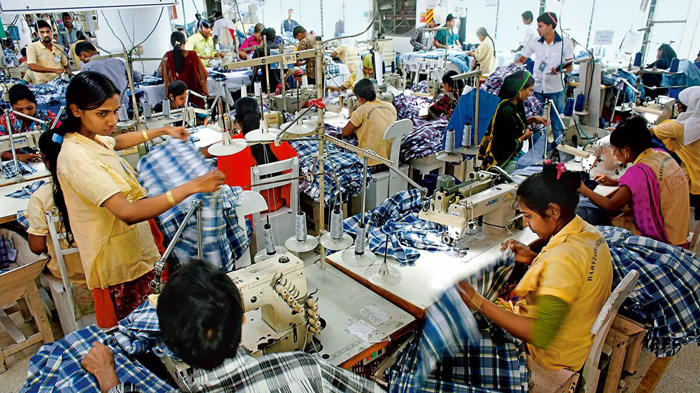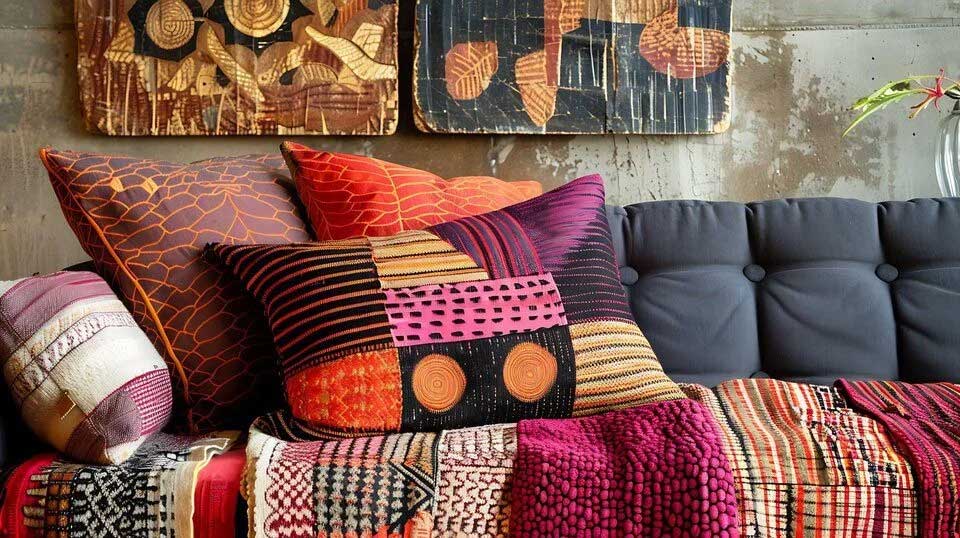"With Brexit on a knife edge, many designers and small-time manufacturers doubt whether the bi-annual catwalk event London Fashion Week holds anything for them. A slowdown in customer spending has triggered cautiousness in the rag trade. Luxury retailer Harrods is increasing its spring/summer stock to protect the exposed areas of its business ahead of the March 29 deadline. As the Business of Fashion website points out, the UK fashion sector may face disruptions in key imports besides losing access to international talent if the UK fails to reach a deal to soften the country's exit from the European Union."
 With Brexit on a knife edge, many designers and small-time manufacturers doubt whether the bi-annual catwalk event London Fashion Week holds anything for them. A slowdown in customer spending has triggered cautiousness in the rag trade. Luxury retailer Harrods is increasing its spring/summer stock to protect the exposed areas of its business ahead of the March 29 deadline. As the Business of Fashion website points out, the UK fashion sector may face disruptions in key imports besides losing access to international talent if the UK fails to reach a deal to soften the country's exit from the European Union.
With Brexit on a knife edge, many designers and small-time manufacturers doubt whether the bi-annual catwalk event London Fashion Week holds anything for them. A slowdown in customer spending has triggered cautiousness in the rag trade. Luxury retailer Harrods is increasing its spring/summer stock to protect the exposed areas of its business ahead of the March 29 deadline. As the Business of Fashion website points out, the UK fashion sector may face disruptions in key imports besides losing access to international talent if the UK fails to reach a deal to soften the country's exit from the European Union.
Custom clearances, increased prices cause concern
Meanwhile, Irish designers, manufacturers and retailers are dealing with new worries, such as customs clearance and the challenges around pricing, tariffs, sourcing production and fabrics that would come with a No Deal Brexit. There's the prospect of international customs and temporary export-import documents being reintroduced.
For the fashion-loving consumer, there's the annoying prospect of increased costs, potential shipping and customs delays hitting delivery times. For online shoppers, there's the added disappointment of an end to free delivery from some sites. Eddie Shanahan, retail consultant and founder of the Council of Irish Fashion Designers (CIFD), last season led a group of Irish designers to a show in London. Although initially their enthusiasm was high, it dampened after a hugely successful show in aid of the London Irish Centre in Camden. Their optimism about how they can now tap into in that market was tinged with concerns.
hitting delivery times. For online shoppers, there's the added disappointment of an end to free delivery from some sites. Eddie Shanahan, retail consultant and founder of the Council of Irish Fashion Designers (CIFD), last season led a group of Irish designers to a show in London. Although initially their enthusiasm was high, it dampened after a hugely successful show in aid of the London Irish Centre in Camden. Their optimism about how they can now tap into in that market was tinged with concerns.
A direct blow to sales
Brexit could directly hit brand sales. For designer Heidi Higgins, sales through its online store would be the major challenge, while Designer Niamh O'Neill fears that tariffs could push up prices. The prospect of increased costs on favorite British labels is enough to dampen the dreams of those harboring dreams of entering the industry. The graduate collection of for student could be hit too, a reason why many students are buying fabrics through wholesalers in Britain.
Exploring new avenues
The FeeG label has successfully diversified its business outside UK. It has established a foothold in Italy and Jewish markets in Israel and New York. Dublin designer Jennifer Rothwell is focusing on exporting to the Middle East, Dubai in particular. She says, Brexit would not massively affect the brand’s UK sales as it is a high-end luxury brand and plans to set up some US pop-ups later in the year to continue brand expansion in the US.
After 21 years of working with Fruit of the Loom in Co Donegal, Bernie Murphy’s skills as a garment technologist and product development were made redundant. Two years ago she launched her own fashion label starting with a distinctive smocked scarf followed by striking tweed pieces for which she sources her fabrics and yarns in her own native county. Her fashion tale is a positive one in an industry where so many designers have had their creative impulses cut to the quick by fear.












